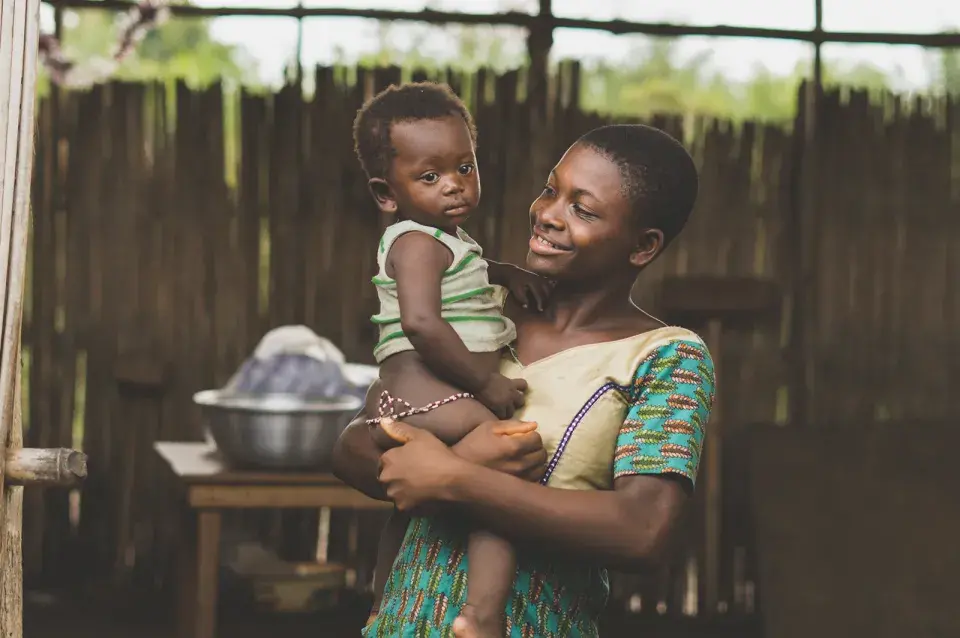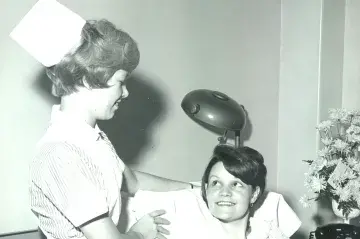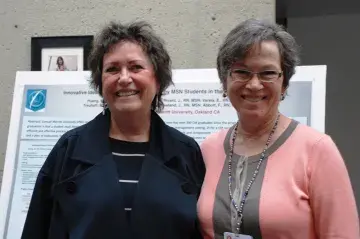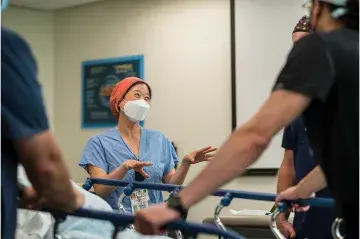Student's Project Promotes Breastfeeding in African Nation to Prevent Infant Mortality

Daniella Johnson’s longtime interest in global health led her to work as a nurse in Morocco and Eastern Europe. When she wanted to make it into a career that would have a greater impact, she enrolled in Samuel Merritt University’s (SMU) Doctor of Nursing Practice (DNP) program.
This week, Johnson is completing her capstone project in the West African nation of Mauritania, where she has been leading an effort to encourage exclusive breastfeeding among new mothers as a way to prevent of infant mortality.
“It has been pure joy to watch infants grow on breast milk alone,” says Johnson, on a visit to weigh infants and collect breastfeeding data.
The California native first visited Mauritania in 2014 and said she was struck by the poverty, limited resources, and poor access to healthcare in Nouakchott, the capital and largest city of the Muslim nation.
At a clinic in the suburb of Dar Naim, where mothers bring in children suffering from severe malnutrition, the staff asked Johnson if she would be interested in a preventative health project focused on nutrition.
Johnson says taking a course on epidemiology and population health at SMU played a critical role in researching and developing her project because it addressed how nurses can guide efforts to reduce health disparities. She learned through course materials that Mauritania’s infant mortality rate is about 65 deaths per 1,000 live births — as compared to six per 1,000 in the United States.
“The disparity was shocking to me and still is,” says Johnson.
She discovered through her research that the single most effective intervention to reduce all causes of infant mortality is exclusive breastfeeding for the first six months of life. That’s because feeding infants only breast milk provides them with passive immunity and prevents exposure to harmful bacteria found in contaminated water or food sources.
Johnson returned to Mauritania in late 2014 to plan her project in cooperation with Dar Naim’s Minister of Health. She kicked it off two months ago by training four women volunteers with breastfeeding experience to serve as peer counselors to new mothers, considered one of the most effective methods of promoting exclusive breastfeeding.
The group visited local birthing centers and invited all women who had given birth in January to participate in the project. Once a week, the counselors visited the 26 new mothers who enrolled to give them support with their breastfeeding and help solve problems like engorgement and dealing with fussy babies. In addition, Johnson and a local nurse twice conducted home visits to weigh the infants and collect data about whether the babies had been given anything other than breast milk.
Johnson said it has been inspiring to work with the women involved in the project and watch their confidence grow.
“They have a passion for their community and a desire to see their children flourish,” says Johnson. “They welcomed me into their world of limited resources and helped me grasp, in a small way, what they are up against in realizing health here.”
The project has faced some challenges. While all of the mothers are breastfeeding, not all are doing it exclusively. Some of the mothers offered their babies prelacteal feedings, a religious practice in which newborns are fed food such as mashed dates, orange juice or sugar water on their first day of life before a mother begins breastfeeding. Also, according to Johnson, many of the women were not aware that an infant does not need to drink water.
The nurse in Dar Naim will meet with the mothers again when their babies are six months old to determine how many have continued to breastfeed exclusively. Johnson’s project is consistent with the goal of the DNP program to prepare nurses with the skills to apply research and evaluate data in clinical practice to produce the profession's future leaders.
“This has been the highlight of my journey towards my DNP degree. Without the instruction I received from the program’s courses, I would not have been in a position to facilitate and implement this project,” Johnson says. “I am hopeful and more motivated than ever to see what nursing leadership can accomplish in implementing similar projects.”
Michelle DeCoux Hampton, PhD, RN, director of the DNP program, said she is impressed with Johnson’s commitment to increasing access to evidence-based care in Africa.
“She feels so passionately about this work and has established relationships with providers and agencies in Mauritania all on her own,” said Hampton. “Daniella is an example of the potential impact a Doctor of Nursing Practice degree can have on healthcare nationally and internationally.”


